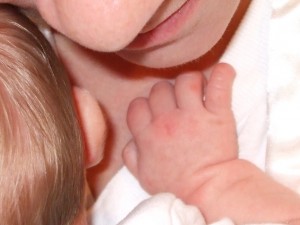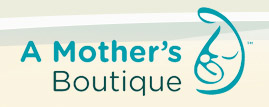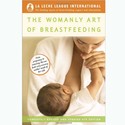|
|
January 16th, 2009  Daytime naps might last just a few short hours, but they can affect all twenty-four hours of a child’s day. Naps can improve a child’s mood and reduce fussiness, crying, whining, and tantrums. Studies show that children who nap daily get sick less often, grow taller, and are less likely to be obese when they grow up. Naps enhance attention span and brain development. Naps can also help make up for any shortage in nighttime sleep. Even a one hour shortage in overall sleep hours can have a negative effect on a child – compromising alertness and brain function, and increasing fussiness and fatigue.
There are many ideas for helping a child to take a nap, but the best idea in the world may not work for you if the solution doesn’t address the reason that your child won’t nap. There is not just one reason that babies and young children refuse to nap – there are hundreds of different reasons. Before you decide on a solution you need to understand your child’s motivation. Once you figure out the cause of your child’s “nonnappingness” you can put together a plan to overcome her resistance. Here are a few typical reasons kids won’t nap – and suggestions to solve each problem:
Problem: Has outgrown the current nap schedule
Solutions: Think about any changes in your child’s life, growth or development. Has he learned to crawl, begun to eat solid food or started daycare? Any change can also affect sleep patterns. Watch your child for signs of tiredness between naps and adjust your schedule to meet his new needs.
Problem: Nap schedule doesn’t match your child’s biological clock
Solutions: Naptime, bedtime, mealtime, exposure to light and darkness, and activity all can affect your child’s biological clock. Look at your child’s schedule to be sure these things occur at reasonable times every day. The improper order of things (such as active, brightly lit playtime just before bed) can affect your child’s rhythm.
Problem: Nap schedule isn’t consistent from day to day
Solutions: If on weekdays nap times, bedtime and wakeup time are specific, but on weekends they’re hit and miss, then your child will be functioning with a constant bout of jetlag. Other inconsistencies can also affect this, such as when your child naps at a certain time at daycare, but a different time at home, or if he takes a nice long nap on days when you are at home but takes a short one in the car (or skips a nap entirely) when you are on the go. Set up a possible nap schedule for your child and do your best to stay within a half hour of the nap times that you have set up.
Continue reading When Your Child Needs A Nap But Won’t Take One
January 8th, 2009  The other day I asked my friend, Amy Farr, to share with my readers what it is that she does. Amy is a doula and if your town is anything like mine- many people you will run into don’t even know exactly what a doula is. That’s okay- it’s why I wanted her to . . . → Read More: Doulas Have Heart And Are By Your Side During Childbirth
November 28th, 2008  My baby is only happy when I’m within arm’s reach. If I dare to leave the room, she cries as if I’ve left the country! I can’t even so much as take a shower these days, let alone leave the house without her. My mother-in-law says it’s because I’ve spoiled her. Is she right? Have I made her so clingy?
Nothing you’ve done has “made” your baby develop separation anxiety. It’s a perfectly normal and important developmental adaptation. Nearly all children experience separation anxiety between the ages of seven and 18 months. Some have more intense reactions than others, and for some, the stage lasts longer than others, but almost all babies have it to some degree.
The development of separation anxiety demonstrates that your baby has formed a healthy, loving attachment to you. It is a beautiful sign that your baby associates pleasure, comfort, and security with your presence. It also indicates that your baby is developing intellectually (in other words, she’s smart!)
 She has learned that she can have an effect on her world when she makes her needs known, and she doesn’t have to passively accept a situation that makes her uncomfortable. She doesn’t know enough about the world yet to understand that when you leave her you’ll always come back. She also realizes that she is safest, happiest, and best cared for by you, so her reluctance to part makes perfect sense especially when viewed from a survival standpoint. Put another way: You are her source of nourishment, both physical and emotional; therefore, her attachment to you is her means of survival, and when she reaches a certain level of intellectual maturity, she realizes this. She has learned that she can have an effect on her world when she makes her needs known, and she doesn’t have to passively accept a situation that makes her uncomfortable. She doesn’t know enough about the world yet to understand that when you leave her you’ll always come back. She also realizes that she is safest, happiest, and best cared for by you, so her reluctance to part makes perfect sense especially when viewed from a survival standpoint. Put another way: You are her source of nourishment, both physical and emotional; therefore, her attachment to you is her means of survival, and when she reaches a certain level of intellectual maturity, she realizes this.
This stage, like so many others in childhood, will pass. In time, your baby will learn that she can separate from you, that you will return, and that everything will be okay between those two points in time. Much of this learning is based on trust, which, just as for every human being young or old, takes time to build.
How do I know if my baby has separation anxiety?
Continue reading Nearly All Children Experience Separation Anxiety
November 21st, 2008  QUESTION: I know that it’s normal to have the “baby blues” right after you have a baby, but my son is six weeks old. I thought everything would be wonderful by now and I would be so in love with my baby. I thought mothering would come easily. It’s not that way at all! I can’t sleep, even when he’s sleeping. I feel hollow inside, like the real me is gone. Sometimes I cry for hours; other times, I feel angry enough to explode. Life feels like an endless amusement park ride, and sometimes I just want to get off. Why am I such a terrible mother?
 Learn about it Learn about it
You’re not a terrible mother! You are a mother who is suffering from a condition known as postpartum depression, a condition that is treatable. While as many as 80% of mothers experience a temporary and mild condition referred to as the baby blues, up to 15% of women have the more severe reaction you’re experiencing.
Having PPD doesn’t mean that you have done something wrong, or that something is wrong with you; it is an illness and it can be cured. Once you learn more about what’s causing your despondent emotions and take some steps toward treatment, you’ll be on the road to finding yourself again and enjoying your baby.
What is postpartum depression?
PPD is a medical condition, a specific type of depression that occurs within the first few months after childbirth. It is caused by the biochemical and hormonal changes that happen in the body after pregnancy and birth…nothing that is within your control.
What are the symptoms of postpartum depression?
While PPD affects all women differently, a few typical symptoms can help your physician make the diagnosis. You probably are not experiencing everything on the following list, and the degree of symptoms may range from mild to severe, but if a number of these apply to you, you may be suffering from PPD.
Symptoms of postpartum depression may include but are not limited to:
- Feeling hopeless, worthless or inadequate
- Frequent crying or tearfulness
- Insomnia or sleepiness
- Lack of energy
- Loss of pleasure in activities you normally enjoy
- Difficulty doing typical daily chores
- Loss of appetite
- Feelings of sadness and despair
- Feelings of guilt, panic or confusion
- Feelings of anger or anxiety
- Extreme mood swings
- Memory loss
- Over Concern for baby
- Fear of “losing control”
- Lack of interest in sex
- Worrying that you may hurt your baby
- A desire to escape from your baby or your family
- Withdrawal from social circles and routines
- Thoughts about hurting yourself
If you suffer from extreme degrees of any of these symptoms, particularly thoughts about hurting yourself or your baby, or if you have additional physical symptoms such as hallucinations, confusion or paranoia, then please call a doctor today. NOW.
Continue reading Postpartum Depression Can Be Cured
|
|

 She has learned that she can have an effect on her world when she makes her needs known, and she doesn’t have to passively accept a situation that makes her uncomfortable. She doesn’t know enough about the world yet to understand that when you leave her you’ll always come back. She also realizes that she is safest, happiest, and best cared for by you, so her reluctance to part makes perfect sense especially when viewed from a survival standpoint. Put another way: You are her source of nourishment, both physical and emotional; therefore, her attachment to you is her means of survival, and when she reaches a certain level of intellectual maturity, she realizes this.
She has learned that she can have an effect on her world when she makes her needs known, and she doesn’t have to passively accept a situation that makes her uncomfortable. She doesn’t know enough about the world yet to understand that when you leave her you’ll always come back. She also realizes that she is safest, happiest, and best cared for by you, so her reluctance to part makes perfect sense especially when viewed from a survival standpoint. Put another way: You are her source of nourishment, both physical and emotional; therefore, her attachment to you is her means of survival, and when she reaches a certain level of intellectual maturity, she realizes this.









